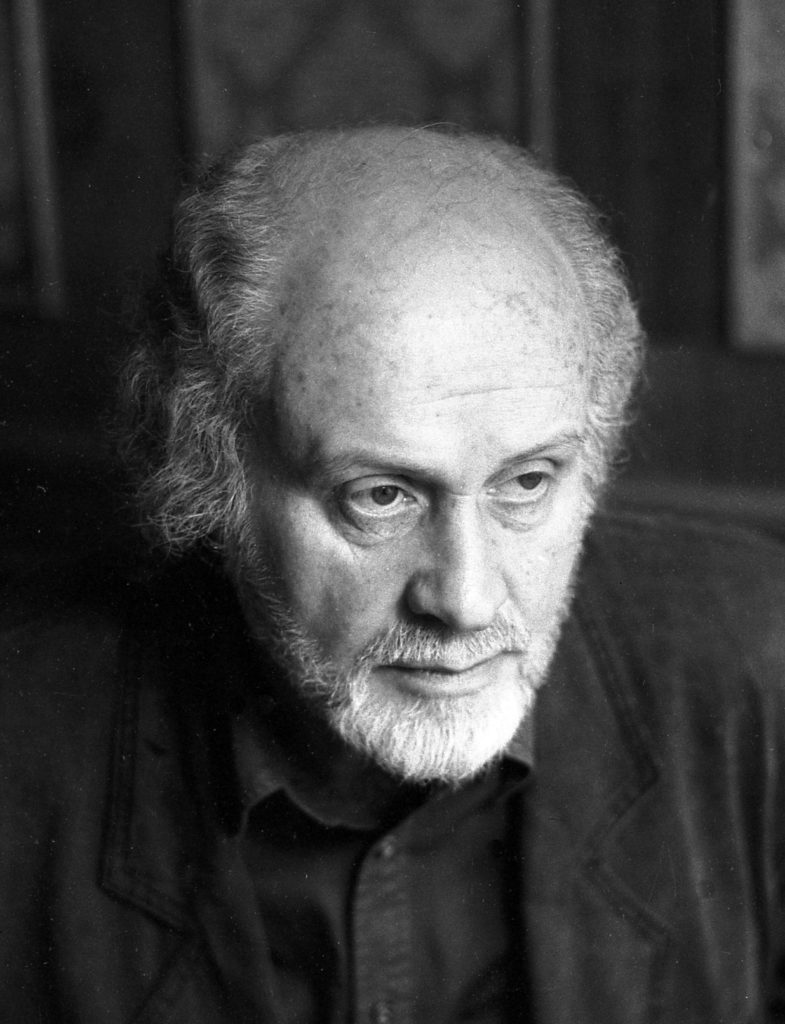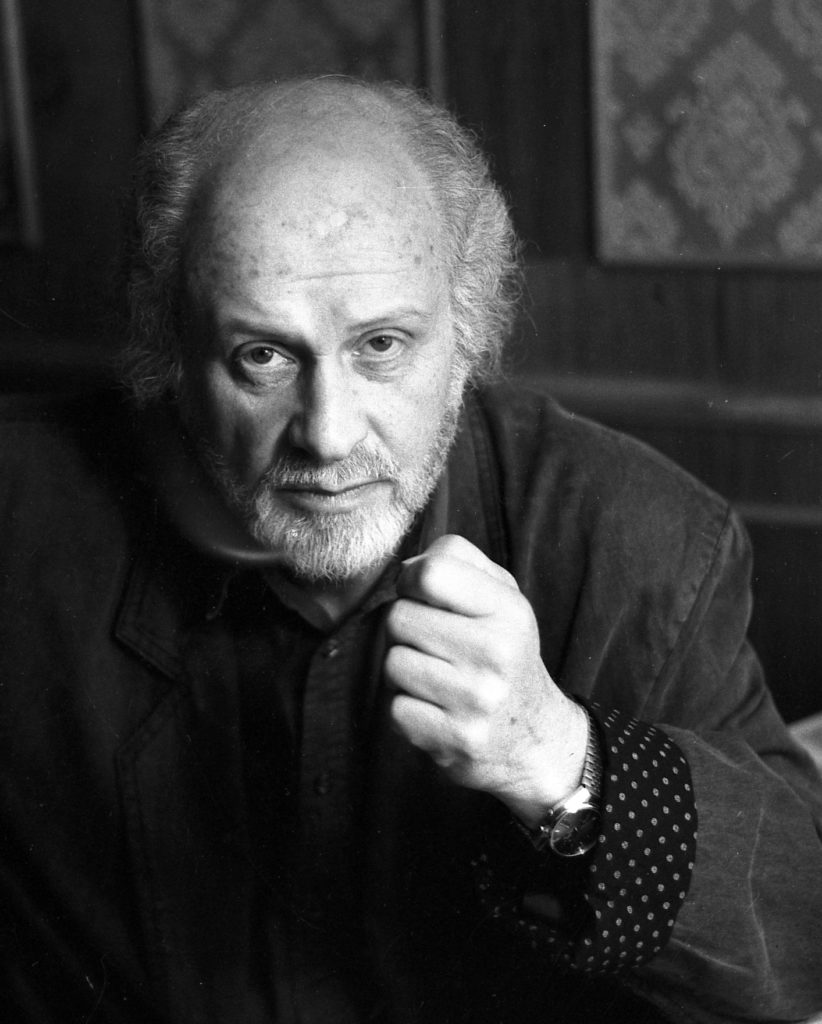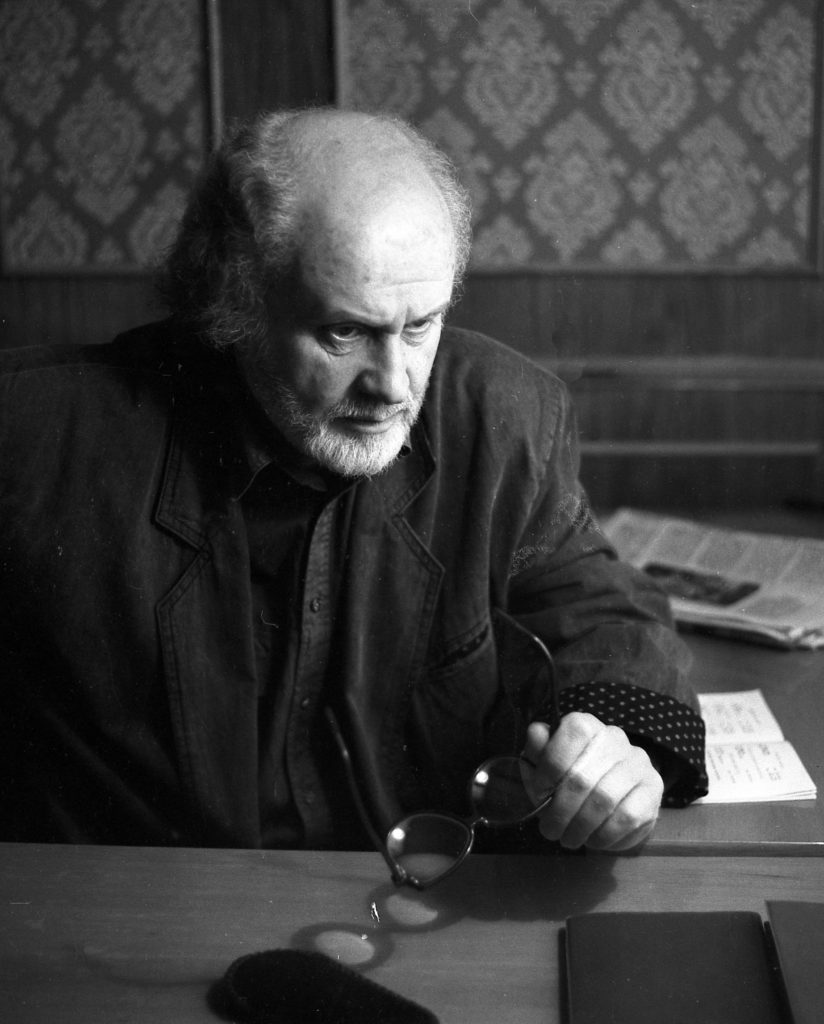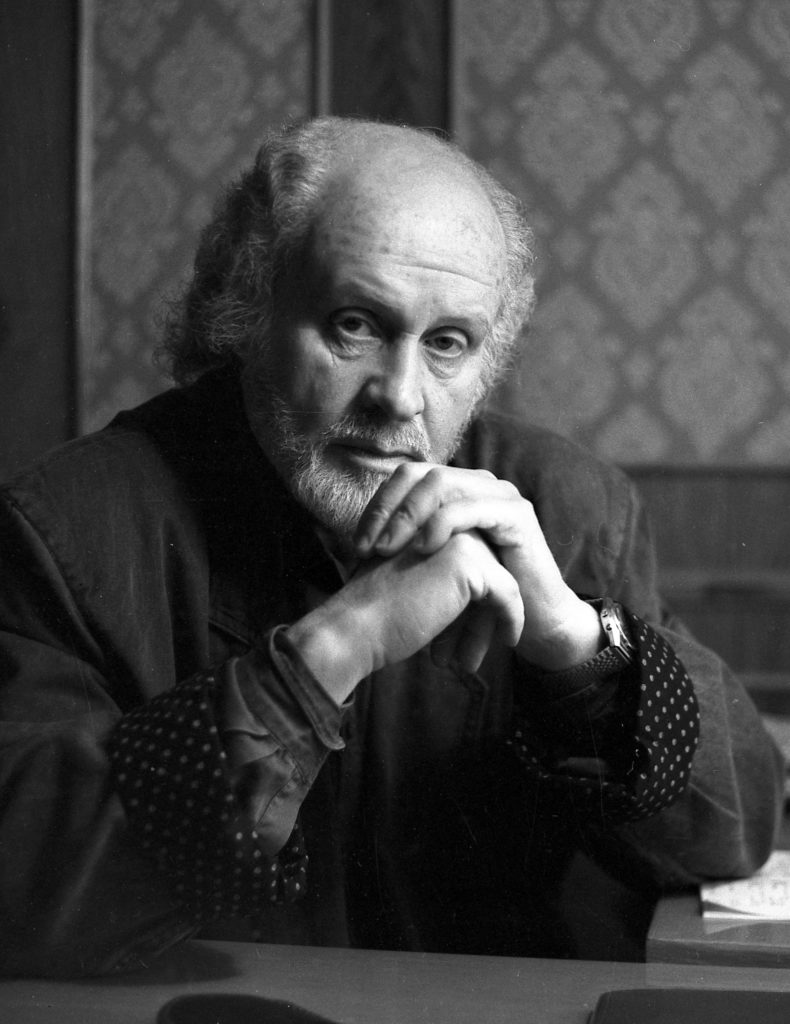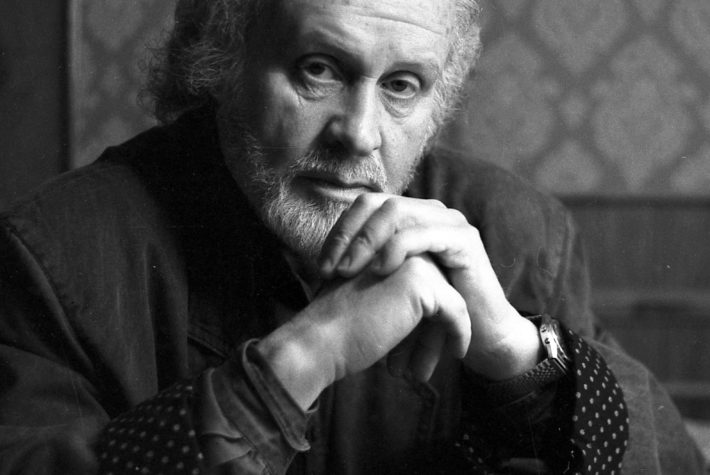
Eduard Markovych Mytnytskyi is an outstanding Master, the luminary of Ukrainian theater, the founder of the Left Bank Theater, who headed it for 40 years, Ukrainian director and teacher, People’s Artist of Ukraine, professor of the Department of Directing and Actor’s Skills at the Kyiv National University of Theater, Cinema and Television named after I. Karpenko-Karyi.
He was born on August 4, 1931. Graduated from Kyiv Pedagogical Institute (1956) and Kyiv State Institute of Theater Art named after Ivan Karpenko-Karyi (1964).
His creative output includes more than 170 productions in theaters, on radio, television, in folk theater groups, and concert programs.
For many years, the director’s performances were performed on the stages of leading Ukrainian theaters, as well as outside Ukraine. He worked in theaters in Bulgaria, Latvia, Lithuania, Germany, Slovakia, and the Czech Republic; his performances toured in Belgium, Bulgaria, Germany, Poland, Russia, and Turkey.
The founder of our theater is not the only one who left behind a generation of students, the so-called new wave of the Mytnitsy School. Among them – the main director of our theater – Tamara Trunova, Munir Bakri (Israel), Andriy Krytenko (works in Germany), L. Masnikova (Czech Republic), Dmytro Lazorko, Mykhailo Lich, Igor Matiyev, artistic director of the Lviv Theater for Children and Youth Yurii Mysak, People’s Artist of Ukraine Yurii Odynokyi, Oleksandr Oleksiuk, People’s Artist of Ukraine Dmytro Bogomazov, Honored Artist of Ukraine Oleksii Lisovets, Ihor Talalaevskyi, Dmytro Veselskyi and many other famous artists.
The master, whose cultural heritage will be studied by future generations, created a pioneering theater that is always at the forefront, shapes meanings – it will remain so in the future. The performances of Eduard Mytnytskyi are filled with a deep philosophical understanding of reality, intellectual content and bright stage form. Mytnytskyi the director, using a wide palette of stage means of expression, always revealed the organic nature of the actor’s giftedness as much as possible.
Quotes:
“No matter what the play is, it’s our job to make it a blast!”
“The theater is an emotional provocation of the audience. The subject of the theater was and remains universal — an endless combination of human essence.”
“After all, the world is not so scary when there is a theater”
“Theatre is a space for visual exploration of the paradoxes of human life”
“The theater exists precisely for emotional exchange. Theater is an emotional provocation of the audience. The subject of the theater was and remains universal — an endless combination of human essence.”
“It seems to me, after all, that experience shows that you can reach any person, a person from any circle and any cultural stratum. Much depends on how involved the audience is in the problems raised by the playwright and the theater. If the interests of the scene are far from the viewer’s problems (and the problems are transformed in different eras, in different decades), then in such cases the docking does not occur. Human relationships – conflicts, contradictions, misunderstandings – are the basis for endless imaginative combinations in the most unexpected theatrical forms. The act of involvement of the stage and the hall in certain phenomena of life unites those on the stage with those in the hall”
“Humanity’s life is inexhaustible, it changes at every turn of history. And this should be studied not only by sociologists, but also by artists. Therefore, the theater should probably split a person and present such artistic combinations to make even the most pragmatic and indifferent person feel. To talk about how a person is arranged is the purpose of the theater”
“The viewer came to rest” – I have a constant conflict with such a question. Emotional response is serious work of the soul. If a person rests in the theater, then we are terribly bad at work. Emotional stress caused by an act of art is a great happiness. A person does not injure himself with such tension, but fills, enriches”
“The theater is a passion of a person who immerses himself in another world for a few hours. And then everything depends only on the person himself. The influence of the theater is transformed into some other quality, perhaps in the following generations, in the general cultural context. Cultural heritage is transmitted in invisible ways – as a culture of perception, a culture of thinking, a culture of feelings. After all, the world is not so scary when there is a theater”
“You can’t live by the past, even by classical values, because every epoch brings something new”
Performances
Anna Karenina – Director and author of staging
Mein Kampf, or Socks in a Coffee Pot − Director and author of artistic decision
Sea… Night… Candles… − Director
Three Sisters – Director
